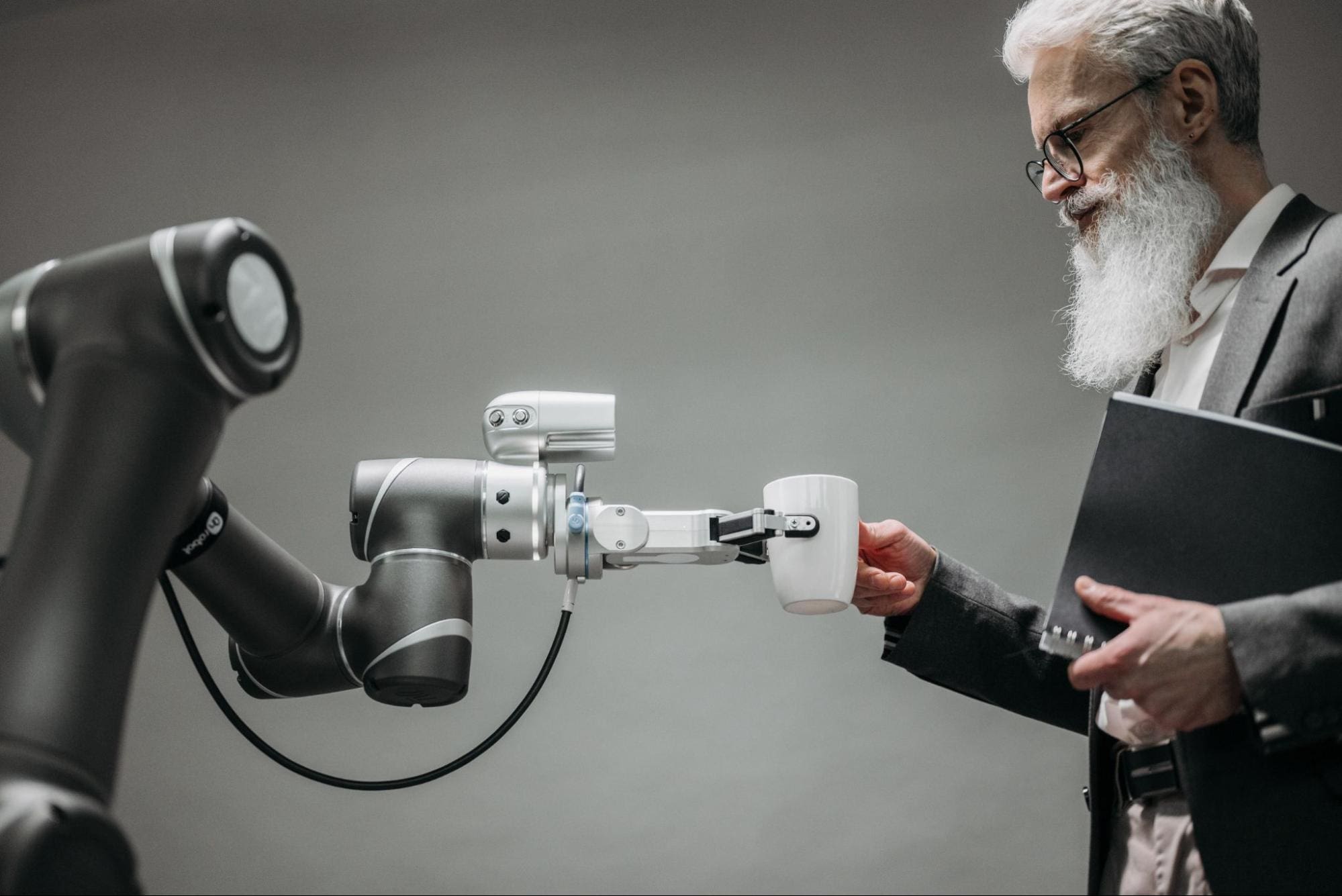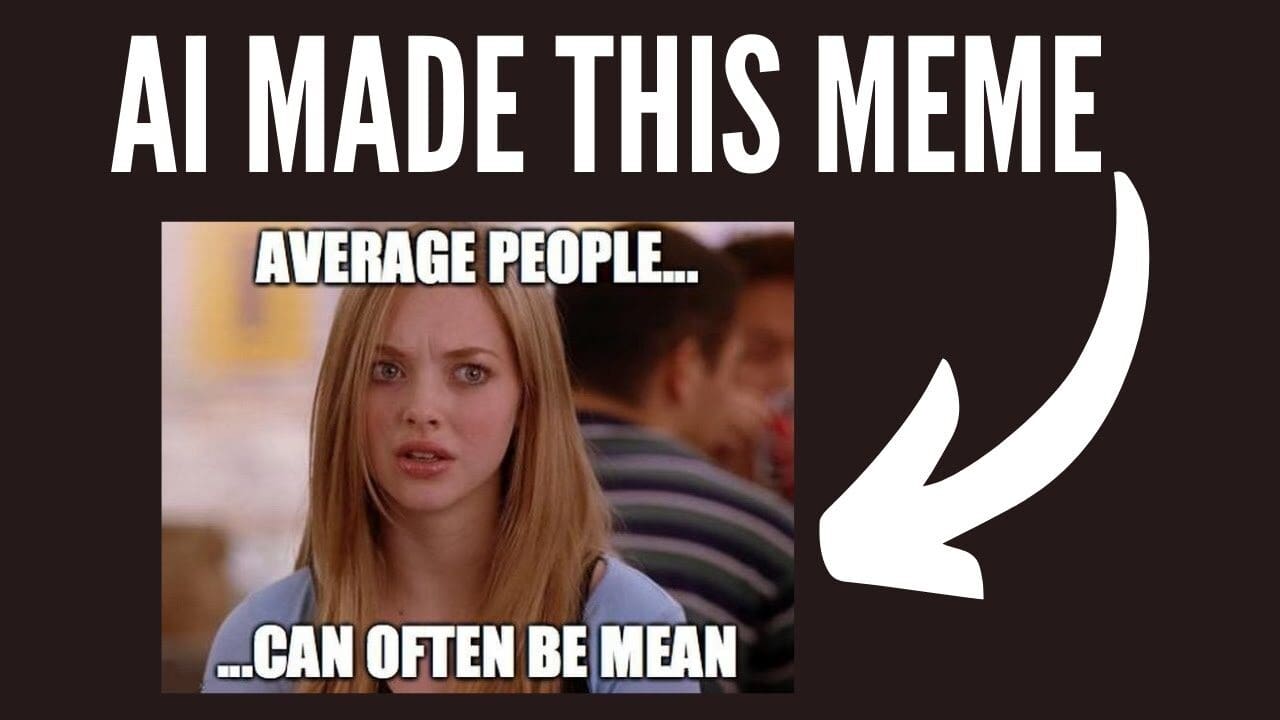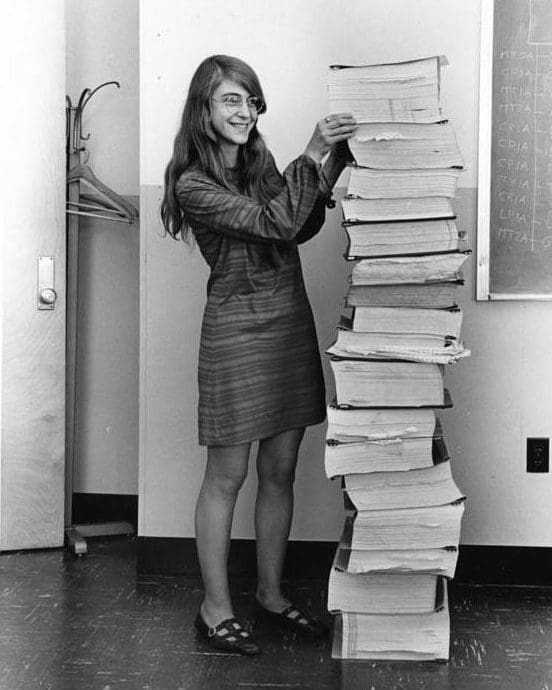Will 300 million Jobs really be Exposed or Lost to AI Replacement?
The authors of the Goldman Sachs report suggest that 300 million jobs might be affected by AI replacement. Here’s why reason to be both cautious and hopeful.

Photo by Pavel Danilyuk
AI technology has burgeoned into the mainstream in the last six months or so, thanks to the runaway popularity of tools like Midjourney and ChatGPT. Naturally, with the rapid adoption of these tools – along with alarming articles suggesting AI can cure cancer, pass the bar, score highly on AP tests, code a game, and oust journalists – people feel as though their livelihoods are threatened.
Then Goldman Sachs released a report suggesting that AI could cause 300 million jobs to be degraded or lost in American and European markets. Cue the panicked headlines.
I thought it worth exploring the report in a little more depth to what the report is really saying, what kind of job losses we can expect, in what fields, and what those most at risk can do to offset the dangers.
Overview of the report
The report basically says three things:
- Almost every single industry has exposure to tasks being replaceable by AI. They flag legal and administrative industries with the greatest potential to have parts of their job replaced by AI, while manufacturing and construction are least at risk.
- The authors predict that up to 7% of current US employment will be fully substituted by AI. Roughly 63% will be complemented. Around 30% will be unaffected.
- The cumulative effect of this will be an increase in productivity, leading to an eventual increase of the annual global GDP by 7%
Despite the gloom and doom headlines, the authors end on a hopeful note. “The combination of significant labor cost savings, new job creation, and higher productivity for non-displaced workers raises the possibility of a productivity boom that raises economic growth substantially.”
How to understand the Goldman Sachs report
I’d recommend you read the report more than relying on headlines. The Goldman Sachs report is much more cautious. The whole report is called “The Potentially Large Effects of Artificial Intelligence on Economic Growth,” and there’s a good deal of nuance in there.
For example, while Forbes author Jack Kelly says that the report suggests AI will “diminish” roles, the authors of the original report make it clear they expect AI to complement those jobs, not diminish them. The authors also make it clear that they expect few employees to be entirely replaced by AI.
Imagine an employee in the admin industry, which the report suggests is one of the professions most exposed to AI, with 46% of tasks replaceable by AI. Even if you could replace 90% of what one employee does, it’s extremely unlike that you can get an AI to do everything that employee does.
Administrative workers don’t just do basic tasks; they also communicate with employees, collaborate to set up meetings, and deal with unexpected issues – things only a human can do. If automation could replace administrative assistants, Calendly would have done so already.
That’s basically what the report is saying. Jobs could be at risk, but most (93%) won’t be. Most are only exposed, meaning that some of those day-to-day tasks might be replaced by AI, but then this will increase productivity.
It’s also worth realizing that AI will create new jobs, as the authors of the report underlined. “[W]orker displacement from automation has historically been offset by creation of new jobs, and the emergence of new occupations following technological innovations accounts for the vast majority of long-run employment growth,” they write.
Many write-ups also claim that AI is already replacing many professions which I know for a fact isn’t possible. For example, Kelly goes on to write, “Instead of a live person addressing a problem, you can engage with an online chatbot. AI can help diagnose cancer and health issues.” Many medical professionals have gone on the record to demonstrate that what they do is not replaceable by AI.
ER doctor Josh Tamayo-Sarver tested ChatGPT’s ability to diagnose patients and found it dangerously lacking.
“ChatGPT worked pretty well as a diagnostic tool when I fed it perfect information and the patient had a classic presentation,” he writes, detailing how ChatGPT misdiagnosed some patients while failing to ask obvious questions that a human doctor would know to ask. “The vast majority of any medical encounter is figuring out the correct patient narrative.” And that’s not replaceable.

Image from Youtube
And anyone who has interacted with a chatbot knows how helpful and necessary it is to be able to escalate to a real person on the other end of the line.
Ways AI can take jobs
Of course, there are still jobs at risk. And while the net effect of AI might be to introduce more jobs, that’s no benefit to the people who lose their jobs due to AI right now. There are two paths that put your job at risk: direct replacement and indirect competition.
Direct replacement
Many writers, programmers, and graphic designers are threatened directly by unscrupulous CEOs who want to cut costs and use mediocre content generation rather than pay a wage. Right now at least, generative AI is not capable of doing everything a programmer does like debugging, peer review, and thoughtful problem-solving.
But cost-conscious bosses might not care about that until it’s too late.
Indirect competition
In any field where fast generation beats quality, AI will cause job loss. For instance, one of my peers recently told me she lost her job as editor-in-chief – not because her boss outsourced the job to AI, but because the entire website had lost 90% of their profits due to being outcompeted by AI-generated content on those keywords.
Her boss regretfully laid her off to save costs and hopes to rehire her in the future. In the long term, I expect that content will be more penalized, but that’s no consolation to her right now.
What kinds of jobs will be lost?
Depending on which study you read, different jobs are at differing levels of risk. For example, the Goldman Sachs study says that the admin, law, and information processing industries are most at risk. Another study says that writing and programming are on the chopping block; science and critical thinking are not.
I do think it’s worth highlighting that sometimes those are not mutually exclusive. Which programmer has never used critical thinking? That’s what makes me believe it’s not AI per se that’s causing job loss; it’s people in charge trying to save a buck. And I believe they’ll regret it in the long term.
What is being done to combat AI job loss?
There are a few paths currently being pursued to protect employees against AI-caused job loss. On an individual level, many people are learning to use AI in their day-to-day to make them more efficient and effective. Many companies and countries are outright banning generative AI for security risks. Certain industries are striking against AI.
Learn to use AI
The easiest and fastest way to prevent AI-related job loss is to learn to incorporate AI into your workflow. As the founder of a company, I’m hardly going to fire myself anytime soon, but I have learned to use AI to draft emails, capture transcriptions of important calls, summarize long articles to save time, get technical help with projects, and even help me write code.
Other workers have added AI to their job titles, such as AI prompt experts or AI-powered SEO specialists. Employers are doing this too, hiring AI-assisted workers in fields as diverse as real estate brokerages marketing leaders, and tech knowledge workers.
If you’re a data scientist or an aspirant, this is how ChatGPT can help you be a better data scientist.
Industry strikes and demands
Two examples come to mind. First, one open letter was signed by over 27,000 individuals including leaders like Elon Musk requesting a pause on AI development. The signers cite other technologies that have been paused until research can be done to make them safer, like cloning, human germline modification, gain-of-function research, and eugenics.
Second, the Hollywood Screenwriters have gone on strike to request, among other things, a guarantee that there will be no AI in the writing room, either fully automated or partially so. Their strike has not yet been successful, but it sets a precedent.
Finally, many publications online have limited or outright banned AI-generated content, whether code, writing, or art. Here are just a few:
- StackOverflow banned GPT and ChatGPT answers
- Medium limits the distribution of AI-authored articles, while some publications on the platform ban it entirely
- Getty Images has banned AI-generated art for copyright concerns

Image generative with lexica
Security bans
Finally, some countries and companies have banned ChatGPT due to security concerns. Seven countries, including Russia and Italy, have banned ChatGPT for reasons including child safety and international security. Samsung asked employees not to use ChatGPT for security risks, while Bank of America, Citigroup, Deutsche Bank, Goldman Sachs, and Wells Fargo have banned it for the same reason.
All this to say that the progress of AI is not unchallenged, and many parties are thinking carefully about how to implement it in a way that makes sense for everyone’s safety.
Potential benefits of AI
I love how the Goldman Sachs report summarizes their position on how AI might affect the economy: “Substitute sometimes, complement often.”
As mentioned, AI technology is expected to increase the GDP by 7% in the coming years, and in the meantime, I know it’s helped me at least improve the overall productivity and enjoyment of my work. Much as I imagine today’s programmers are relieved they don’t need to program computers via a series of hole-punched papers, I suspect tomorrow’s programmers will have incorporated AI generative technology in a way that makes life easier, not harder or less financially stable.

Computer scientist Margaret Hamilton poses with the Apollo guidance software she and her team developed at MIT. Credit: Courtesy MIT Museum.
Final thoughts on the true risk of AI to jobs
There’s no way to predict anything AI could do, and the authors of the original article highlight that. It’s called “potentially” large effects, after all. Anyone who claims they know the answer is lying or misled.
From my perspective, there’s reason to be both cautious and hopeful. On the one hand, there will always be those who want to earn a quick buck at the expense of people. On the other, AI represents a potential shift into the future that we haven’t seen since the propagation of the personal computer.
I won’t pretend I know how it will all end up, but I do know that for anyone who wants to understand the true risk of AI to job loss, it pays to read the primary sources of research, follow thought leaders, and don’t be caught up by hype, either positive or negative. It’s a nuanced question, and I’m excited to see how it develops.
Nate Rosidi is a data scientist and in product strategy. He's also an adjunct professor teaching analytics, and is the founder of StrataScratch, a platform helping data scientists prepare for their interviews with real interview questions from top companies. Connect with him on Twitter: StrataScratch or LinkedIn.
